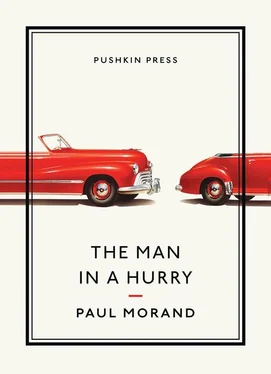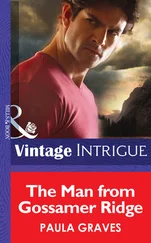“Oh Pierre,” said Hedwige, “you’re not taking me seriously!”
She looked so upset that he relented immediately.
“Well, I do have one friend, an old pal named Placide who knows me so well that he fell out with me; but we made up later. He even sent me a beautiful silver and crocodile sponge bag for my wedding. I’ll bring him to meet you for lunch. You can ask him all the questions you please. Pretend to make some unpleasant remarks, the normal number of treacherous things that figure in what’s called ‘a perceptive friendship’, and you’ll learn more about me than I know myself.”
“I need Roustoutzeff’s book on Animal Style in South Russia and China (Princeton, 1926); it should be there; could you find it for me, dear Placide, while I finish this monograph?”
“I’ll come and help you,” said Hedwige.
They had finished lunch and were taking coffee in Pierre’s study.
“A monograph?” asked Placide.
“Yes,” said Pierre, “and it would actually be of interest to both of you. I’m writing something about the cloister, which after all I owe in part to both of you. It’s come from the United States.”
Placide and Hedwige were on their knees, picking up large volumes, knocking down stacks of books and arranging them any old how.
“Ah! Here it is,” said Hedwige, laying her hands on the copy and, extremely pleased with herself, taking it to Pierre.
“Thank you, my love,” answered Pierre distractedly, for he was already stuck into Gourhan’s Bestiary of Chinese Bronze . “It’s been superseded.”
“Ah, now that’s typical of your husband,” exclaimed Placide. “‘Superseded’. It’s one of his favourite expressions. He asks you for something, you go to great lengths to find it and then when you give it to him, he’s already found something better. I can’t recall one single occasion when I’ve been able to do a favour for him in time. ‘Superseded’,” he repeated, shrugging his shoulders. “I know some people who mean a lot to you and who say: it’s been surpassed. But your way of going farther back is to go farther away.”
“Yes, it’s true,” said Hedwige, “he’s marvellous. He’s a magician.”
“I don’t share that view,” Placide replied. “He’s fairly successful, but not in his chosen career. He was made to be an office runner, a motorcycle delivery man, an arbitrager, a screenwriter, a switchboard operator, anything you like, but not a collector of period objects. Period pieces have true values and true values pay no heed to haste. ‘Time does not respect what is done without it.’ You can be sure that objects like this, which have endured for three thousand years, have been created gradually.”
He showed Hedwige a shapeless block of mouldy stone, a lump of excavated jade depicting a wild boar.
“Is that a period piece?” asked Hedwige, intrigued. “It doesn’t look like a work of art.”
“You don’t have to have taste to recognize the art of the Middle Ages,” replied Pierre, who had finished writing and was stretched out on his sofa, blowing the smoke from his cigar up to the ceiling. “But I must respond to Placide… in actual fact, a primitive work of art represents countless hours of work and that is what makes it priceless for me. I think of the ordinary man who has put his heart and his strength into it, of the woman, of the family who have sacrificed their eyes to embroider that chasuble or this shroud. But please believe me when I say that those people worked quickly, the time element was not wasted. It’s just that their sense of speed was not ours. A fine piece of material, of gold or silverware, it’s the equivalent of a thousand ploughed and sowed fields, of more than a hundred forests that have been cleared, it accounts for more hardship and time expended than the longest illness. And what wretched tools they used! When I contemplate a piece of ivory or enamelware, it’s as if I were reaching out my hand to all those who made it, owned it and sold it again and again over the centuries: I can hear them, they speak to me. The initial shock you get from a work of art is a psychic one, next comes the technical examination, the patina, the holes caused by woodworm, and other absurdities. The first thing a work of art does is yell at you from afar that it has lived. It projects its own aura before it.”
Placide gave an ironic smile:
“I was a student at the École des Chartes. I have a magnifying glass for an eye and always will have. But in your case, we know you have a hawk’s eye assisted by the sensibility of a clairvoyant.”
“It’s simply that I don’t have the guts to go round in circles, as you all do, without becoming seasick. For you, life is a cycle; for me it’s a flat spiral, Goethe’s spiral; you don’t get out of it by turning back; the backwards gallop is a false revolution, a curators’ revolution; you have to run speedily to the end of each period in order to rise higher. In France (a land that was quick once), we have become prolix and apathetic; the day we rediscover our traditional pace, in a new Middle Ages period, we shall produce more Princesses de Clèves and Manon Lescauts , we shall discover Molières who will churn out their plays, Pascals who will dash off their pamphlets. It’s not through eighteen-volume novels by Madame de Charrière that France will make her mark on posterity, it’s through small portable bombs such as Candide or Atala .”
He stopped to catch his breath.
“What was I saying? I’ve forgotten.”
“You’re losing your ideas along the way,” Placide sniggered.
“I remember. Napoleon is not concise because he is the emperor, he’s the emperor because he is concise. If I hadn’t been concise, I wouldn’t have got the Mas Vieux or Hedwige. Placide, I’m leaving her with you, I have to go out. You must explain to her in what ways I resemble Napoleon.”
Sitting in her armchair, her hands crossed like a little girl waiting to be told a lovely story, Hedwige looked questioningly at Placide.
“Well, madame,” said Placide, “are you waiting for me to discuss the antique dealer with the nimble feet with you? It’s a joke. You know him better than I do!”
“I don’t know him,” said Hedwige simply. “Who can know Pierre?”
“Then why do you come to me?”
“Because you’ve followed his career for a long time and you can tell me about his life.”
The subject did not inspire Placide greatly, but he liked to hold forth and he could not have found a better audience. Already fascinated, she lapped up his words. He began in a light-hearted tone, mannered and slightly mocking, running through the school years, the successful exam results and the early days in what he called “business”.
“In art,” he said, “Pierre delved back in time with the same frenzy with which he approached everyday life. From the Gothic, which was his speciality, he hopped over, God knows why, to the Merovingian and from the Merovingian he dashed over to Iranian sources.”
With a condescendingly forgiving smile, he explained how Pierre had gained ground on everyone else and discovered, sometimes at excavation sites, sometimes in private collections, objects that were ten or fifteen centuries older than the steel trains or duralumin planes aboard which he took them away, and how this “treasure-hunt” satisfied his need for “irrational trips away”. He acknowledged generously, nevertheless, that Pierre, before any of his colleagues in either the old or the new world, had taken the trouble to study ethnography, popular art, linguistics, archaeology and aerial photography, helped by an aptitude and a prodigious memory, which enabled him to take part in excavations and to discover trails with a flair that tended to irritate the specialists.
Читать дальше












